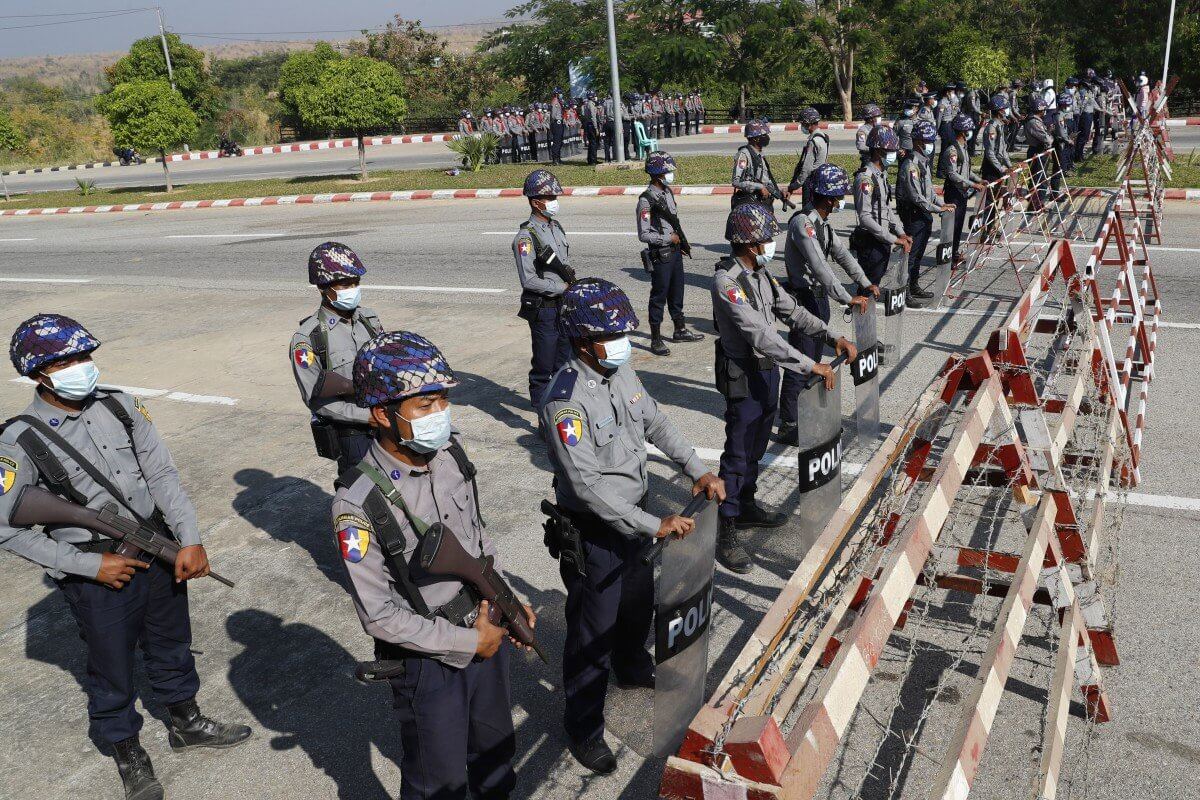On Monday, Myanmar’s military-owned Myawaddy TV reported that the military was overtaking the government for one year and that many high-level politicians, including State Counsellor Aung San Suu Kyi and President Win Myint, have been placed under house arrest. The coup has been attributed to the failure of the government to act on the military’s claims of voter fraud in the election conducted last November, where the National League for Democracy (NLD) won in a landslide victory with 83% of the votes. In this regard, the military television cited a section of the military-drafted constitution that allows them “to take control in times of national emergency”. The military’s seizure of power was also accompanied by the deployment of an unusually high number of tanks around Naypyidaw, raising alarm among civilians and government officials.
The announcement came on the morning that the country’s Parliament was to begin its first session, and follows days of concern over a military coup. Last week, the military’s commander-in-chief, Senior General Min Aung Hlaing, told senior officers that the constitution, which outlaws a coup, could be revoked if the laws were not being properly enforced. At the time, the military dismissed rumours of a possible coup. However, over the last two days, several politicians were detained and communication lines, including phone, television, and the internet, were cut off.
MRTV, the state broadcaster, explained on Facebook that it was off-air due to “technical issues”. Other members taken into custody include the National League for Democracy (NLD) party’s Central Executive Committee members, lawmakers, and regional Cabinet members. “As far as we know, all the important people have been arrested by the Burmese military… So, now we can say it is coup d'état,” said NLD spokesperson, Myo Nyunt.
Since the declaration of the election results, the military had been unhappy with the election commission’s response to its complaints regarding discrepancies such as duplicated names on voting lists in scores of districts. However, it did not say whether these discrepancies were large enough to have affected the outcome of the elections. In relation to this, the military released a statement today declaring the state of emergency.
“The voter lists which were used during the multi-party general election which was held on the 8th of November were found to have huge discrepancies and the Union Election Commission failed to settle this matter... In order to perform scrutiny of the voter lists and to take action, the authority of the nation's law making, governance and jurisdiction is handed over to the Commander in Chief in accordance with the 2008 constitution article 418, sub article (a),” the statement read.
Civilians were further angered when the election commission announced its decision in October to cancel voting in other parts of the country based on recommendations by the government, the Defence and Home Affairs Ministries, the military, and the police. The commission, however, did not provide information on the criteria it used, which should have been clearly determined and explained after due consultation with candidates and parties. Although the military has not explicitly listed these as reasons for the recent coup, these events could have informed the military’s opinion that there was electoral fraud.
However, what is more likely is that the military’s tense co-existence with the NLD had come to a head, particularly given that the party had gained so much power in the recent election, which the military perhaps saw as eroding its own influence. Although the military is guaranteed 25% of seats in the parliament, and control of the Defence, Home Affairs, and Immigration ministries, the NLD’s overwhelming election victory made policymakers within the military uneasy about their relative monopoly on power in the country. This comes as quite a stark turn of events, given that Suu Kyi has publicly supported the military’s harsh treatment of the Rohingya Muslims and excused countless verifiable human rights abuses. It appears that this deferential stance was not enough to appease the military leadership.
Suu Kyi, for her part, wrote a note in anticipation of this event, which was posted to the Facebook account of her party. It reads: “I urge people not to accept this, to respond and wholeheartedly to protest against the coup by the military.”
The move has been met with condemnation from the United States (US), who released a statement saying that it opposed attempts made by the military to alter the outcome of the November elections and steps that hinder Myanmar’s democratic aspirations. It also threatened to “take action against those responsible if these steps are not reversed”. Canada, Australia, New Zealand, India, South Africa, the European Union, and several other international actors also raised their opposition to the developments.
Myanmar State Counsellor Aung San Suu Kyi, President Win Myint Detained in Military Coup
Myanmar military has taken over the country for one year ahead of the new parliamentary session, placing government officials, including Aung San Suu Kyi and President Win Myint, under house arrest.
February 1, 2021

SOURCE: AP
